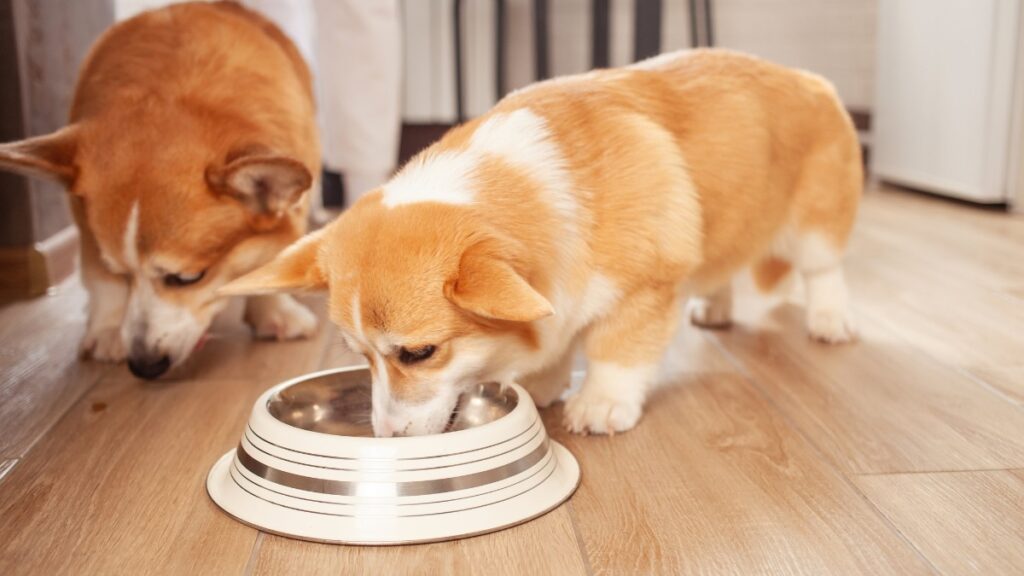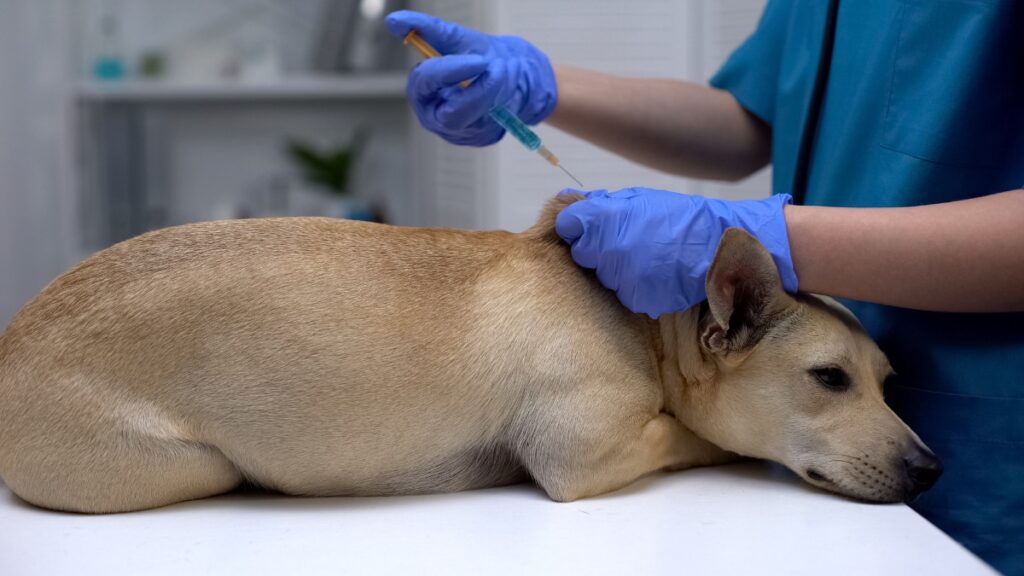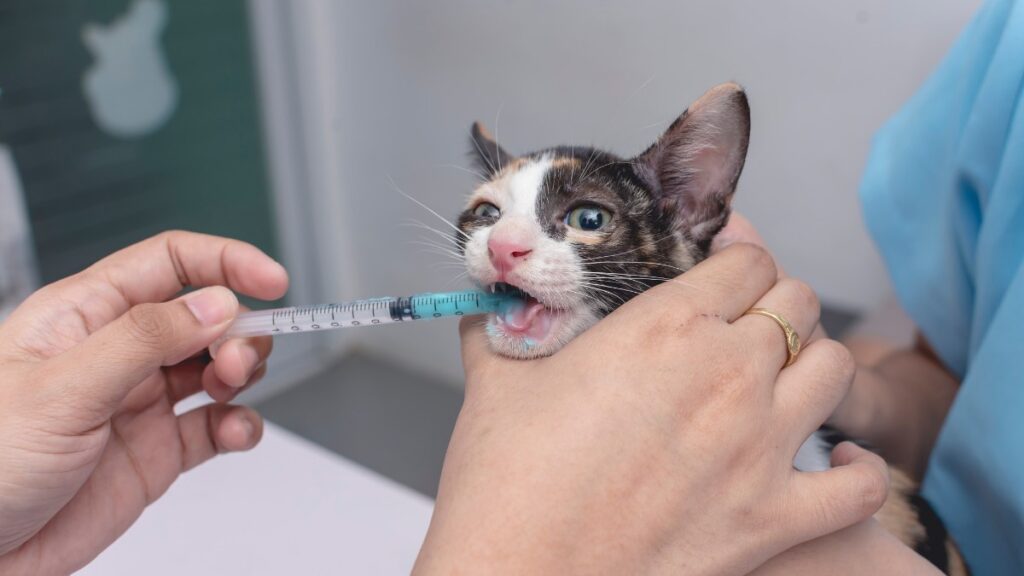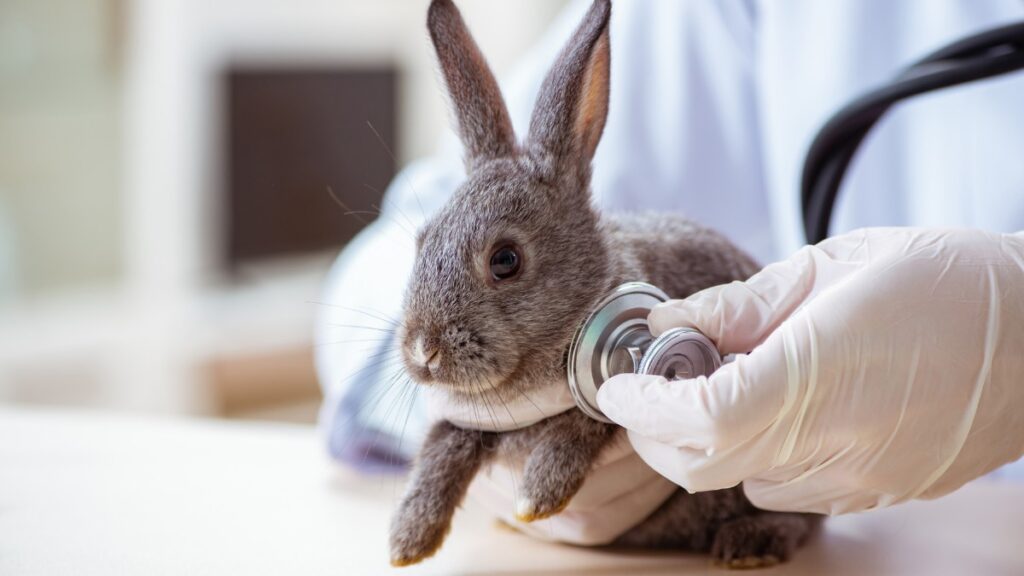Welcome to coccidiosistreatment.com, your trusted resource for comprehensive small pet healthcare and effective solutions for addressing intestinal parasites. At toltrazurilshop.com, we understand the importance of maintaining the well-being of your cherished small pets, and we specialize in providing guidance and products to combat coccidiosis effectively. Our website, coccidiosistreatment.com, serves as a valuable hub where pet owners can access vital information on intestinal parasites and discover the latest advances in coccidiosis treatment. With our commitment to offering reliable advice and access to high-quality products, we aim to empower pet owners in safeguarding the health and happiness of their beloved furry companions. Explore our resources and solutions to ensure the best care for your small pets.
Importance of small Pet Care
Small pet care is not just a responsibility; it’s a labor of love. These tiny creatures rely on us to provide for their every need, from food and shelter to health and happiness. It’s essential to prioritize their well-being because they bring so much joy into our lives.

When it comes to small pets like rabbits, guinea pigs, and hamsters, understanding their unique physiology and health needs is crucial. Each species has its own set of requirements that must be met in order for them to thrive. From providing the right type of bedding material to ensuring they have enough space to exercise, attention to detail is key.
Intestinal parasites can pose serious risks to the health of small pets if not addressed promptly. These unwelcome guests can cause symptoms such as diarrhea, weight loss, and even organ damage in severe cases. Regular veterinary check-ups are vital for early detection and treatment.
Preventative measures play a crucial role in keeping intestinal parasites at bay. Maintaining cleanliness and hygiene within your pet’s living environment is paramount. Regularly cleaning cages or enclosures helps minimize the risk of infestation.
Diet and nutrition also play a significant role in preventing parasitic infections in small pets. Providing a balanced diet rich in nutrients strengthens their immune system, making them less susceptible to these invaders.
In addition to conventional treatments such as medications or deworming protocols prescribed by veterinarians, alternative treatments and home remedies may also be considered under professional guidance.
Recovery from an intestinal parasite infection requires careful monitoring post-treatment along with adjustments in diet and living conditions if necessary. It’s important not only for your pet’s immediate recovery but also for long-term prevention strategies moving forward.
By staying informed about the latest research advancements in this field, we can ensure that we are equipped with up-to-date knowledge on effective parasite control methods specific to small pets’ needs.
The journey towards comprehensive care for small pets involves dedication, time commitment, and a genuine passion for their well-being. So let’s join forces to
Overview of intestinal parasites in small pets

Intestinal parasites can be a common concern for small pet owners. These tiny organisms, such as worms and protozoa, can wreak havoc on the digestive system of our furry friends. It’s important to have a basic understanding of these parasites in order to properly care for our beloved pets.
There are several types of intestinal parasites that can affect small pets, including roundworms, hookworms, tapeworms, and coccidia. Each type has its own unique characteristics and ways of infesting the host’s body. While some parasites may cause mild symptoms like diarrhea or weight loss, others can lead to more serious health issues if left untreated.
Diagnosing intestinal parasites in small pets typically involves a thorough examination by a veterinarian who will conduct fecal tests to identify any eggs or larvae present in the stool sample. These tests help determine the specific type of parasite and guide the appropriate treatment plan.
Preventing parasitic infections is crucial for maintaining your small pet’s overall health. Practicing good hygiene by regularly cleaning their living environment and providing clean food and water is essential. Additionally, feeding them a balanced diet rich in nutrients helps strengthen their immune system which makes it harder for parasites to thrive.
Regular veterinary check-ups play a vital role in preventing and treating intestinal parasites in small pets. Your vet will not only monitor your pet’s overall health but also provide necessary vaccinations and deworming treatments when needed.
When it comes to treating intestinal parasite infections, there are both conventional medications available as well as alternative treatments like natural remedies that can be effective against certain types of parasites. However, it is important to consult with your veterinarian before trying any home remedies or alternative treatments as they will know what works best for your specific situation.
Recovery from an intestinal parasite infection requires careful monitoring post-treatment. Observing changes in your pet’s behavior, appetite, bowel movements along with regular follow-up visits with your vet ensures that they are on the path to recovery.
1. Understanding Small Pets

Small pets, such as rabbits, guinea pigs, and hamsters, are adorable additions to any household. They may be tiny in size but require just as much care and attention as their larger counterparts. Before bringing a small pet into your home, it’s important to have a basic understanding of their physiology and health needs.
Different types of small pets have varying characteristics that make them unique. Rabbits are herbivores with sharp teeth for chewing on fibrous vegetation. Guinea pigs are social animals that thrive when they have companionship. Hamsters are nocturnal creatures that love to burrow and explore their surroundings.
To ensure the well-being of these delightful creatures, it is crucial to provide them with proper nutrition and a suitable living environment. Just like humans, small pets need regular exercise to maintain good health. Enclosures should be spacious enough for them to move around comfortably while also providing hiding spots for privacy.
In addition to physical care, mental stimulation is essential for small pets’ overall well-being. Providing toys or activities that encourage natural behaviors can prevent boredom and promote happiness in these curious critters.
By understanding the specific needs of each type of small pet, you can create an environment where they can thrive happily alongside your family members!
Common types of small pets (rabbits, guinea pigs, hamsters, etc.)
When it comes to small pets, there are a variety of adorable and fascinating creatures to choose from. Let’s take a closer look at some of the common types of small pets that people often bring into their homes.
Rabbits are known for their fluffy coats and twitchy noses. They can be quite sociable and enjoy interacting with their human companions. Guinea pigs, on the other hand, have short fur and make cute little squeaks. These gentle creatures love munching on fresh veggies and hay.
Hamsters come in different breeds but all share one thing in common – they’re incredibly adorable! From Syrian hamsters to dwarf varieties, these tiny critters are great for those who have limited space.
Ferrets may not be as well-known as rabbits or guinea pigs, but they are equally delightful as pets. With their playful nature and curious personalities, ferrets can keep you entertained for hours on end.
Each type of small pet has its own unique needs when it comes to diet, habitat, and social interaction. It’s important to research thoroughly before bringing any pet home so that you can provide them with the best care possible!
Remember: taking care of a small pet is a big responsibility – one that requires time, patience, and commitment. So whether you choose a rabbit or opt for something more exotic like a sugar glider or hedgehog – always ensure that you’re providing them with proper nutrition, regular veterinary check-ups,and lots of love!
Stay tuned for the next section where we dive deeper into intestinal parasites in small pets
Basic physiology and health needs
Understanding Small Pets
When it comes to small pets like rabbits, guinea pigs, and hamsters, it’s important to have a good grasp of their basic physiology and health needs. These furry friends may be tiny in size, but they still require specific care to thrive.
Small pets have unique digestive systems that differ from larger animals. For example, rabbits are known as hindgut fermenters, meaning they rely on the fermentation of fiber in their large intestine for proper digestion. This makes a high-fiber diet crucial for their well-being.
In addition to dietary considerations, providing appropriate housing and environmental enrichment is key. Small pets need enough space to move around comfortably and engage in natural behaviors such as digging or climbing. It’s also essential to ensure they have access to fresh water at all times.
Regular veterinary check-ups are vital for monitoring the overall health of your small pet. These visits allow professionals to detect any signs of intestinal parasites or other illnesses early on so that prompt treatment can be administered.
By understanding the basic physiology and health needs of small pets like rabbits, guinea pigs, and hamsters, you can provide them with the comprehensive care they deserve. Remember – these adorable creatures may be petite in size but keeping them happy and healthy requires no less effort!
2. Intestinal Parasites in Small Pets

Intestinal parasites can pose significant health risks to small pets, making it crucial for pet owners to be aware of these potential threats. These parasites are organisms that live in the digestive system of animals and can cause a range of symptoms and complications if left untreated.
There are several types of intestinal parasites that commonly affect small pets, including worms such as roundworms, hookworms, and tapeworms. These parasites can enter the pet’s body through contaminated food or water, or from contact with other infected animals.
Symptoms of intestinal parasite infestation in small pets may vary but often include diarrhea, weight loss, poor appetite, vomiting, and lethargy. If you notice any unusual signs or suspect your pet may have an intestinal parasite infection, it is essential to consult with a veterinarian for proper diagnosis.
Veterinarians have various methods for diagnosing intestinal parasites in small pets. They may perform fecal examinations to check for the presence of parasite eggs or use blood tests to detect specific antibodies against certain parasites.
Treatment options for intestinal parasites typically involve medications that target and eliminate the specific type of parasite affecting the pet. Deworming medications are commonly prescribed by veterinarians and help eradicate adult worms while also preventing reinfestation.
In addition to conventional treatments like medication-based approaches, some alternative treatments and home remedies claim effectiveness against certain types of intestinal parasites in small pets. However,it is important always seek guidance from a veterinarian before attemxiorpting any alternative treatment on your own as they will ensure safe practices are followed.
Remember that recovery from an intestinal parasite infection requires ongoing care and monitoring post-treatment. Your veterinarian will provide instructions on follow-up appointments as well as adjustments needed in your pet’s diet and living conditions during their recovery period.
Preventing future infections is equally important when it comes to ensuring your small pet’s overall health. Practicing good hygiene by regularly cleaning cages or living areas helps minimize exposure to potentially infectious materials. Providing a balanced diet with proper nutrition also plays a role in supporting your pet’s
Types of intestinal parasites
Intestinal parasites are a common concern for small pet owners. These microscopic organisms can wreak havoc on their delicate digestive systems, causing discomfort and even serious health issues. It’s important to be aware of the different types of intestinal parasites that can affect small pets so that you can take appropriate measures to prevent and treat them.
One type of intestinal parasite commonly found in small pets is coccidia. This single-celled organism can multiply rapidly in the intestines, leading to diarrhea, weight loss, and dehydration. Another common parasite is giardia, which causes similar symptoms and can be transmitted through contaminated food or water.
Tapeworms are another type of intestinal parasite that affects small pets like rabbits or guinea pigs. These segmented worms attach themselves to the lining of the intestine and absorb nutrients from the host’s body. They can cause weight loss, poor coat condition, and irritation around the anus.
Roundworms are yet another group of parasites that commonly infect small pets such as hamsters or mice. These long, spaghetti-like worms live in the intestines and reproduce rapidly. Infected animals may exhibit symptoms such as bloating, vomiting, diarrhea, or a pot-bellied appearance.
To determine if your pet has any intestinal parasites, it’s essential to consult with a veterinarian who can perform diagnostic tests such as fecal examinations or blood tests. Early detection is crucial for prompt treatment and preventing further complications.
Remember that each parasitic infection requires specific treatment protocols tailored to your pet’s needs!
Symptoms and diagnosis
Small pets, just like their larger counterparts, are not immune to the threat of intestinal parasites. These tiny organisms can wreak havoc on the health and well-being of our furry friends if left undetected and untreated. Recognizing the symptoms of these pesky parasites is crucial in ensuring timely intervention.
When it comes to diagnosing intestinal parasites in small pets, there are several signs that pet owners should be aware of. One common symptom is diarrhea, which may range from mild to severe depending on the type and severity of the infestation. Additionally, pets may experience weight loss or a lack of appetite as a result of these unwanted hitchhikers in their digestive system.
Owners may also notice changes in behavior such as lethargy or increased irritability. Some pets may develop a bloated abdomen or exhibit vomiting. It’s important to remember that while these symptoms could indicate an intestinal parasite infection, they could also be indicative of other underlying health issues.
To confirm whether your small pet has intestinal parasites, it is essential to consult with a veterinarian who can conduct various diagnostic tests. These tests often involve analyzing fecal samples for the presence of parasite eggs or larvae under a microscope. In some cases, blood tests or imaging studies may be necessary for accurate diagnosis.
Early detection and proper diagnosis play pivotal roles in effectively treating and managing intestinal parasite infections in small pets. By being attentive to any changes in your pet’s behavior or bodily functions and seeking professional veterinary care when needed, you can ensure that your furry friend receives prompt treatment for any potential parasitic infestations they might have encountered along their adventures!
3. Preventative Measures
When it comes to keeping our small pets healthy, prevention is key. By taking proactive steps, we can help protect them from the pesky intestinal parasites that may try to invade their digestive systems. Here are some preventative measures you can take:
1. Cleanliness and Hygiene: Maintaining a clean living environment for your small pet is crucial in preventing the spread of parasites. Regularly clean their cages or enclosures, removing any waste promptly and disinfecting surfaces when necessary.
2. Diet and Nutrition: A balanced diet rich in nutrients plays a vital role in supporting your pet’s immune system and overall health. Make sure to provide them with high-quality food that meets their specific nutritional needs.
3. Regular Veterinary Check-Ups: Scheduling regular check-ups with your veterinarian allows for early detection of any potential parasite infestations or other health issues. Your vet can also provide guidance on preventative treatments such as vaccinations or deworming medications.
Remember, prevention is always better than cure! By implementing these preventive measures into your small pet’s routine care, you’re taking important steps towards ensuring their well-being and happiness.
Importance of cleanliness and hygiene

Maintaining cleanliness and hygiene is crucial when it comes to the well-being of small pets. It not only helps prevent the spread of intestinal parasites but also ensures a healthy living environment for your furry friend.
Regular cleaning of cages or enclosures is essential to remove any feces, urine, or other potential sources of contamination. This will help minimize the risk of parasites thriving in these areas. Use appropriate disinfectants recommended by your veterinarian to thoroughly clean and sanitize their living space.
Additionally, providing fresh bedding material on a regular basis can help reduce the chances of parasite infestation. Dirty bedding can harbor eggs or larvae from intestinal parasites, so it’s important to maintain cleanliness in this aspect as well.
Pet owners should also practice good personal hygiene when handling their small pets. Wash your hands thoroughly before and after interacting with them, especially if you’ve been cleaning their living space or handling their waste materials.
Furthermore, maintaining a clean feeding area is equally important. Regularly wash food bowls and water dispensers with hot soapy water to eliminate any potential contamination that could lead to parasitic infections.
Prioritizing cleanliness and hygiene plays a vital role in preventing intestinal parasites in small pets. By practicing proper sanitation measures such as regular cage cleaning, providing clean bedding material, washing hands diligently, and keeping feeding areas tidy, pet owners can create an environment that minimizes the risk of parasitic infestations and keeps their beloved companions happy and healthy!
Diet and nutrition for preventing parasites
When it comes to keeping our small pets healthy, proper diet and nutrition play a crucial role. A well-balanced diet not only helps support their overall health but also plays a key role in preventing the occurrence of intestinal parasites.
Feeding your small pets a nutritious diet rich in high-quality ingredients is essential. Ensure that their food contains all the necessary vitamins, minerals, and essential nutrients to boost their immune system. Fresh vegetables like carrots, spinach, and bell peppers can provide additional fiber and help maintain a healthy digestive system.
Avoid feeding your pets any raw or undercooked meat as it may contain parasites. It’s important to provide them with clean, fresh water at all times to ensure hydration and digestion.
Consider adding natural supplements such as probiotics to promote good gut health for your furry friends. These supplements can help maintain a balanced gut microbiome, making it difficult for parasites to thrive.
Additionally, practicing good hygiene when handling food bowls and litter boxes is crucial. Regularly clean these areas thoroughly using pet-safe disinfectants to minimize the risk of parasite infestation.
Remember that prevention is always better than cure when it comes to protecting our small pets from intestinal parasites. By providing them with proper nutrition and maintaining cleanliness in their living environment, we can significantly reduce the chances of parasitic infections occurring. So let’s prioritize their well-being by offering them a wholesome diet tailored specifically for their needs!
Regular veterinary check-ups
Regular veterinary check-ups are an essential part of comprehensive care for small pets. Just like humans, our furry friends also need routine examinations to ensure their overall health and well-being. During these check-ups, veterinarians can assess your pet’s condition, identify potential issues early on, and provide necessary treatments or preventative measures.
During a regular visit to the vet, your pet will undergo a thorough physical examination. The vet will examine their teeth, ears, eyes, coat condition, and body weight. They may also listen to your pet’s heart and lungs for any abnormal sounds or rhythms.
In addition to the physical examination, vets may recommend specific tests depending on your pet’s species and lifestyle. These tests could include fecal exams to check for intestinal parasites or blood work to evaluate organ function.
Regular veterinary visits are especially important when it comes to detecting and preventing intestinal parasites in small pets. Many types of parasitic infections can go unnoticed until they cause significant harm or discomfort for your pet. By having routine check-ups with a veterinarian who specializes in small animal care, you can catch these parasites early before they become a bigger problem.
As responsible pet owners, it is crucial that we prioritize regular veterinary check-ups for our small pets. This proactive approach allows us to stay ahead of potential health issues and take appropriate actions if needed. So mark those dates on your calendar and make sure not to miss those important visits! Your beloved little companion will thank you for it!
4. Treatment Options
When it comes to tackling intestinal parasites in small pets, there are various treatment options available. The key is to work closely with a veterinarian who can guide you through the process and recommend the most appropriate course of action for your furry friend.
Conventional treatments often involve medications specifically designed to target and eliminate intestinal parasites. These medications may come in the form of oral tablets or topical solutions that are administered directly on the pet’s skin. It’s important to follow the dosage instructions provided by your vet and complete the full course of treatment, even if symptoms improve.
In addition to conventional treatments, some pet owners opt for alternative remedies or home remedies. While these approaches may have their merits, it’s crucial to consult with a vet before trying anything new. They can provide insights into any potential risks or interactions with existing medications.
Remember, after receiving treatment, it’s important to monitor your pet’s health closely and make any necessary adjustments in diet and living conditions as recommended by your veterinarian. This will help ensure that they fully recover from the effects of intestinal parasites and minimize the risk of reinfection.
By working together with your vet and following their guidance throughout the treatment process, you can effectively tackle intestinal parasites in small pets and promote their overall well-being!
Conventional treatments (medications, deworming)

When it comes to tackling intestinal parasites in small pets, conventional treatments play a crucial role. These treatments typically involve the use of medications and deworming protocols that are designed to target and eliminate parasites effectively.
Medications prescribed by veterinarians are specifically formulated to combat different types of intestinal parasites. They may come in various forms such as tablets or liquids, making administration easier for pet owners. The dosage and duration of the medication will depend on the severity of the infestation and the type of parasite involved.
Deworming is another common approach used to treat intestinal parasites in small pets. This involves administering oral medications that directly target worms living within their digestive system. Regular deworming schedules help prevent reinfection and ensure optimal health for your furry friend.
It is important to note that while conventional treatments can be highly effective, they should always be administered under veterinary guidance. Veterinarians have extensive knowledge about these medications’ safety profiles, appropriate dosages, potential side effects, and any necessary precautions.
Remember, each case is unique, so it’s essential not to self-diagnose or self-medicate your pet without professional advice. Always consult with a veterinarian who can provide accurate diagnoses and recommend suitable treatment options based on your pet’s specific needs.
By following proper treatment protocols using conventional methods like medication administration and deworming practices recommended by experts in veterinary care, you can help ensure the well-being of your small companion animal when dealing with intestinal parasites.
Alternative treatments and home remedies
Alternative treatments and home remedies are often sought after by pet owners who prefer a more natural approach to their small pet’s healthcare. While conventional medications and deworming treatments can be effective, some people may want to explore other options. It’s important to note that alternative treatments should always be used in conjunction with the guidance of a veterinarian.
One popular alternative treatment for intestinal parasites is herbal remedies. Certain herbs like garlic, wormwood, and pumpkin seeds have been traditionally used to help eliminate parasites from the digestive system. However, it’s crucial to remember that not all herbs are safe for pets, so consulting with a holistic vet is essential before administering any herbal remedy.
Another option worth considering is probiotics. These beneficial bacteria can help support the gut health of your small pet and create an environment less favorable for parasites to thrive. Probiotics can be found in certain foods or supplements specifically formulated for small pets.
Some pet owners also swear by diatomaceous earth as a natural way to tackle intestinal parasites. This fine powder made from fossilized algae acts as an abrasive substance when ingested by parasites, causing them harm.
It’s important to keep in mind that while these alternative treatments may show promise, they have not undergone extensive scientific research or clinical trials specific to small pets’ needs. Therefore, it is crucial always consult with a veterinarian before implementing any alternative treatment or home remedy.
Importance of following vet’s guidance
When it comes to the health and well-being of our small pets, it is crucial to follow the guidance of a trusted veterinarian. These professionals have years of experience and expertise in diagnosing and treating various conditions, including intestinal parasites.
Vets play a vital role in ensuring that your pet receives the appropriate treatment for their specific parasite infestation. They will recommend the most effective medications or dewormers based on factors such as the type of parasite, severity of infection, and your pet’s overall health.
It can be tempting to seek alternative treatments or home remedies found online, but this can be risky. Vets are trained to accurately diagnose parasites and prescribe safe and effective treatments. They understand potential side effects, correct dosages, and proper administration methods.
Following your vet’s guidance ensures that your pet receives the appropriate care at every stage – from initial diagnosis through treatment and recovery. Their expertise helps minimize any potential risks associated with untreated or improperly treated parasitic infections.
Remember that each case is unique. Your vet will tailor their recommendations based on your pet’s specific needs. By following their guidance diligently, you provide the best possible care for your beloved small pet.
So next time you visit your vet for an intestinal parasite issue or any other concern regarding your small pet’s health, trust their expertise wholeheartedly!
5. Recovery and Aftercare
Recovery and aftercare play a crucial role in ensuring the overall health and well-being of small pets after they have been treated for intestinal parasites. It is important to closely monitor their progress and make necessary adjustments to their diet and living conditions.
After completing the treatment, it’s essential to keep a close eye on your pet’s health. Observe them for any signs of relapse or recurring symptoms. Regularly check their stool for any presence of parasites or abnormality. If you notice anything unusual, consult your veterinarian immediately.
In terms of diet, providing a balanced and nutritionally-rich meal is key to supporting your pet’s recovery process. Make sure they are getting enough vitamins, minerals, and protein through high-quality food specifically designed for their species.
Considering that certain parasites can thrive in dirty environments, maintaining cleanliness is paramount. Regularly clean your pet’s habitat, including cages or enclosures, bedding materials, toys, and water bottles. This will help prevent re-infestation.
To further safeguard against future infections: practice good hygiene by washing hands thoroughly before and after handling your pet; ensure proper sanitation practices in their environment; avoid contact with potentially contaminated soil or feces from other animals.
Lastly but importantly – don’t forget about regular veterinary check-ups! These visits allow the vet to assess the effectiveness of treatment while catching any potential issues early on.
Remember that each small pet may require different care during recovery based on factors such as species type, age, overall health condition etc., so always follow your veterinarian’s guidance closely for tailored aftercare instructions suited specifically to your beloved companion animal
Monitoring health post-treatment

Monitoring the health of your small pet after treatment for intestinal parasites is crucial to ensure a successful recovery. While the treatment may have eliminated the parasites, it’s important to keep an eye on your pet’s overall well-being and watch for any signs of relapse or complications.
One key aspect of post-treatment monitoring is observing your pet’s behavior and appetite. If they are eating well, maintaining their weight, and exhibiting normal activity levels, it is generally a positive sign that they are recovering as expected.
It is also important to continue practicing good hygiene and cleanliness in their living environment. Regularly clean their cage or enclosure, wash their bedding thoroughly, and disinfect any toys or accessories they come into contact with. This helps prevent reinfestation by eliminating any potential sources of parasites.
Another aspect of monitoring includes regular veterinary check-ups. Schedule follow-up appointments with your vet to assess your pet’s progress and discuss any concerns you may have. They can perform further tests if needed and provide guidance on ongoing prevention strategies.
Additionally, consider making adjustments to your small pet’s diet based on recommendations from the veterinarian. A balanced diet rich in nutrients can help boost their immune system and support overall health, reducing the risk of future parasite infestations.
Remember, each small pet is unique, so it’s essential to closely monitor them post-treatment based on individual needs and specific instructions provided by the vet. By staying vigilant about their wellbeing even after treatment, you can help ensure long-term intestinal parasite control for your beloved furry friend
Adjustments in diet and living conditions
Adjustments in Diet and Living Conditions
When it comes to tackling intestinal parasites in small pets, making adjustments in their diet and living conditions is crucial. These changes can help create an environment that is less favorable for the parasites to thrive and reproduce.
Let’s talk about diet. Providing a nutritious and balanced diet plays a significant role in maintaining your small pet’s overall health and immunity. A well-fed pet is more likely to have a stronger immune system, which can help fight off potential infections caused by parasites.
Consider incorporating foods that are known for their anti-parasitic properties into your pet’s diet. For example, pumpkin seeds contain natural compounds that can help expel worms from the digestive tract. Likewise, garlic has been used as a natural deworming agent for centuries due to its potent antimicrobial properties.
In addition to dietary adjustments, ensuring proper hygiene within your pet’s living area is essential. Regularly cleaning cages or enclosures helps eliminate any fecal matter or contaminated bedding where parasite eggs may be present.
Furthermore, consider providing ample exercise opportunities for your small pet. Exercise not only promotes physical fitness but also enhances digestion and improves overall gut health.
Remember, each species of small pets may require specific adjustments based on their unique needs. It is always best to consult with your veterinarian who can provide tailored advice regarding dietary modifications and optimizing living conditions for preventing intestinal parasites.
By implementing these adjustments in both diet and living conditions, you are taking proactive steps towards protecting your beloved furry friend from the harmful effects of intestinal parasites!
Ongoing prevention strategies
Ongoing prevention strategies are crucial for keeping small pets free from intestinal parasites. By implementing these practices, pet owners can ensure their furry companions stay healthy and happy.
Regular cleaning of cages or living areas is essential to prevent the buildup of feces and potential exposure to parasites. This includes removing soiled bedding, sanitizing surfaces, and providing fresh water daily.
Maintaining a balanced diet is another key factor in preventing parasitic infections. A nutritionally sound diet helps keep small pets’ immune systems strong, making them less susceptible to parasites. Ensure that your pet’s food is high-quality and appropriate for their specific needs.
Regular veterinary check-ups play a vital role in preventive care as well. Veterinarians can perform fecal exams to detect any signs of parasite eggs or larvae early on. They may also recommend preventative treatments such as deworming medications if necessary.
In addition to conventional treatments, there are natural options available for preventing intestinal parasites in small pets. Some herbal supplements have been found to have anti-parasitic properties and can be used alongside regular veterinary care.
Ongoing prevention strategies are essential for the well-being of small pets when it comes to combating intestinal parasites effectively. By practicing good hygiene, providing a nutritious diet, staying proactive with vet visits, and considering alternative treatments when appropriate – pet owners can help protect their beloved furry friends from these pesky invaders!
Case Studies
Intestinal parasites can wreak havoc on the health and well-being of small pets, but with comprehensive care, these pesky invaders can be effectively tackled. Let’s take a closer look at some interesting case studies that highlight the importance of addressing intestinal parasites in small pets.
Case Study 1: Meet Fluffy, a curious little rabbit who started showing signs of weight loss and decreased appetite. After careful examination by a veterinarian, it was discovered that Fluffy had contracted coccidiosis, a common type of intestinal parasite in rabbits. Prompt treatment with medication helped Fluffy recover and regain her energy.
Case Study 2: Charlie the guinea pig was experiencing chronic diarrhea and discomfort. Upon further investigation, it was revealed that he had been infected with giardia, another prevalent parasite among small pets. With proper veterinary intervention and appropriate deworming medications, Charlie’s symptoms were alleviated.
These real-life examples demonstrate how crucial it is to promptly identify and treat intestinal parasites in small pets to ensure their overall health and happiness. Regular check-ups with a knowledgeable veterinarian are essential for early detection and prevention strategies tailored to each pet’s specific needs.
Remember, every case is unique! It is always important to follow your vet’s guidance when treating intestinal parasites in your beloved furry friends. Stay informed about the latest research advancements in this field as new treatments may become available for even more effective management of these pests.
By staying vigilant about cleanliness, providing a balanced diet rich in nutrients, scheduling regular veterinary check-ups,and following appropriate treatment protocols,you can help keep your small pet free from troublesome intestinal parasites.
These efforts will contribute greatly to ensuring their long-term healthand well-being.
Latest research and advancements in the field
Researchers and scientists are constantly striving to improve small pet care by exploring new discoveries and advancements in the field of intestinal parasite treatment. The ongoing research focuses on finding more effective strategies for preventing and treating these pesky parasites.
One area of interest is the development of novel medications specifically designed to target intestinal parasites in small pets. These medications aim to provide faster and more efficient relief, reducing the time it takes for pets to recover from an infestation. Additionally, researchers are investigating alternative treatments such as natural remedies or probiotics that can help support a healthy gut environment, making it less hospitable for parasites.
Advancements have also been made in diagnostic tools used by veterinarians to identify specific types of intestinal parasites accurately. This allows for prompt diagnosis and targeted treatment plans tailored to each individual small pet’s needs.
Furthermore, studies have shown that maintaining good hygiene practices plays a vital role in preventing parasite infections among small pets. Researchers continue to explore ways to educate pet owners about proper sanitation techniques that can significantly reduce the risk of parasitic infestations.
The influence of diet on parasite prevention is another area receiving attention from researchers. Studies suggest that certain nutrients or supplements may enhance immune function against parasites or create an unfavorable environment within the digestive tract, hindering their growth and reproduction.
Through continuous research efforts, there is hope for improved care when it comes to tackling intestinal parasites effectively in small pets. The latest advancements offer promising solutions ranging from innovative medications targeting specific parasites to holistic approaches focused on overall health management. By staying informed about these developments, pet owners can ensure they provide their furry companions with comprehensive care aimed at keeping them happy and healthy.
Conclusion
Comprehensive care for small pets is essential to ensure their overall health and well-being. Intestinal parasites can pose a significant threat to the health of these adorable creatures, but with proper preventative measures and timely treatment, we can effectively tackle this issue.
By understanding the specific needs of different small pets and providing them with a clean and hygienic environment, we can greatly reduce the risk of intestinal parasite infestation. Regular veterinary check-ups are crucial in detecting any signs or symptoms early on, allowing for prompt diagnosis and treatment.
Remember that each small pet is unique with specific requirements for optimal health. By prioritizing their well-being through preventative measures, timely treatment options when needed, careful monitoring during recovery stages,and ongoing preventive practices,you’ll be able to provide them with a happy & healthy life!
So go ahead! Take proactive steps towards ensuring comprehensive care for your small pets today! They rely on us completely – let’s make sure we give them all they need!
Ensuring the health and happiness of small pets means vigilant care, particularly against intestinal parasites. These tiny invaders, including worms like pinworms and roundworms, can significantly impact your pet’s well-being. Recognizing symptoms early, such as weight loss or digestive issues, is crucial. Effective treatment begins with a vet consultation, followed by appropriate medication and lifestyle adjustments. Preventive measures, including maintaining hygiene and a balanced diet, play a key role. Stay informed and proactive in safeguarding your small pet’s health.
Follow us on Social Media:
